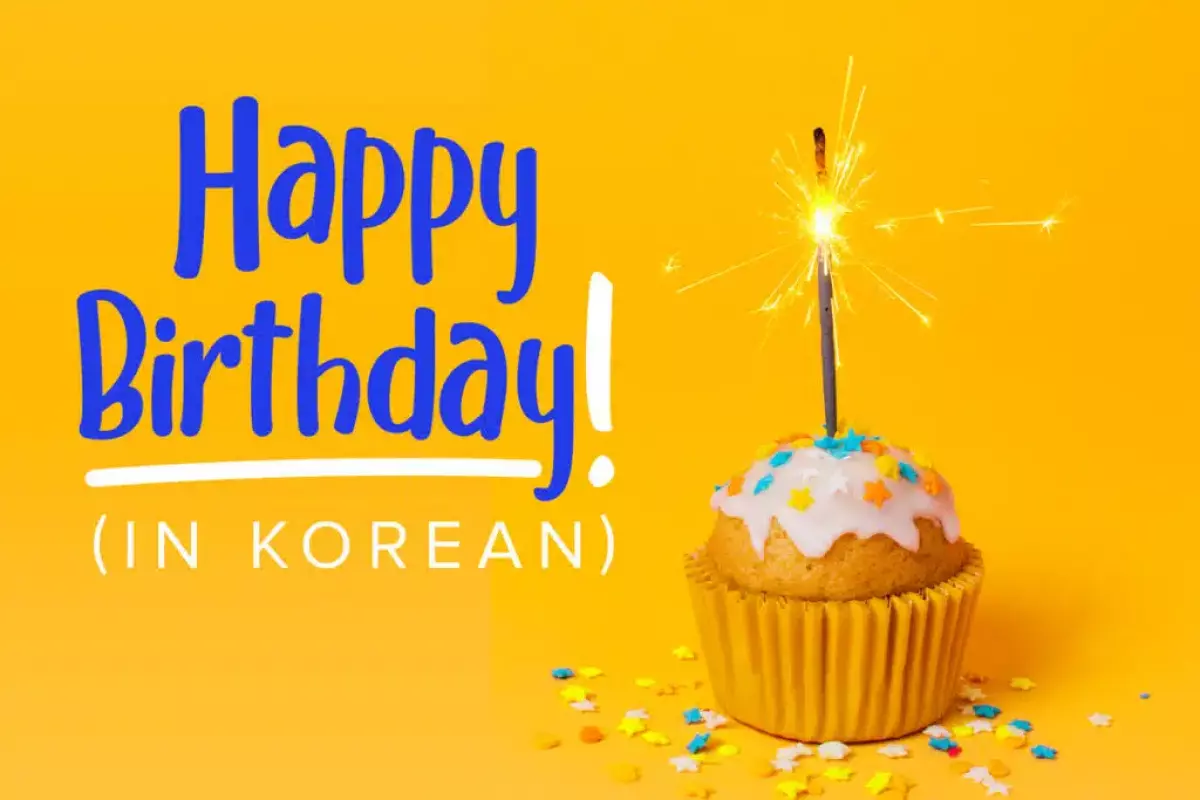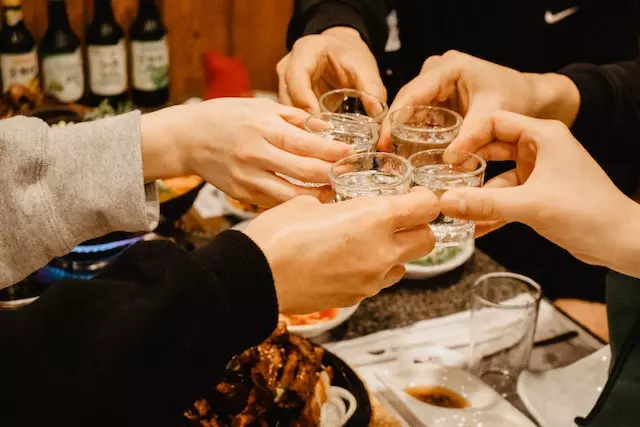
The clock strikes midnight, and suddenly, you feel a little different. Why, you ask? Well, it's your birthday, of course! Birthdays hold special meaning for all of us, and they are often celebrated in unique ways based on our culture and upbringing.
In this post, we will delve into the Korean way of celebrating birthdays. We will explore how to wish someone a "happy birthday" in Korean and discover some fascinating birthday customs along the way.
How To Say Happy Birthday in Korean

The way you say "happy birthday" in Korean depends on your relationship with the person. In Korean culture, understanding the level of formality is crucial when communicating. Let's explore various ways to say it, starting from the most formal to informal.
1. 생신을 축하드립니다
Romanization: Seng-shin-eul chook-ha-deu-rim-ni-da
Formality: Formal
This is the formal way of wishing someone a happy birthday. "생신" is the respectful term for "birthday" in Korean. The honorific "드립니다" signifies the formal context. This phrase is suitable for elders or individuals in higher positions, such as bosses or teachers.
2. 생신 축하드려요
Romanization: Seng-shin chook-ha-deu-ryuh-yo
Formality: Formal
You can use this slightly less formal phrase instead of the previous one. By replacing "드립니다" with "드려요," you reduce the level of formality. This phrase is still highly polite and can be used with elders, bosses, or teachers.
3. 생일 축하합니다
Romanization: Seng-il chook-ha-ham-ni-da
Formality: Formal
This is perhaps the most common way to say "happy birthday" in Korean. "생일" translates to "birthday" literally. It is polite in tone and appropriate for most occasions, whether you're using it for acquaintances or individuals older than or close to your age.
4. 생일 축하해요
Romanization: Seng-il chook-ha-hae-yo
Formality: Polite
This phrase is another commonly used one and is slightly less formal than "생일 축하합니다." It carries a polite tone, evident by the presence of "요." You can use this phrase with peers or individuals younger than you, whom you are acquainted with or work with.
5. 생일 축하해
Romanization: Seng-il chook-ha-heh
Formality: Informal
This phrase is informal in nature and perfect for friends and casual acquaintances around your age or younger. It implies a relaxed and friendly atmosphere. You can also use it with close family members, although some families prefer a more formal approach.
6. 생축
Romanization: Seng-chook
Formality: Very informal
This is a slang variant and an abbreviation of the typical happy birthday phrase. It is commonly used in text or online. The abbreviation "생일 ㅊㅋㅊㅋ" (seng-il choo-ka choo-ka) is another variation. These slang phrases should be reserved for close friends or online pals.
You can practice these sentences using language learning programs like FluentU, where you can see how native speakers use the language in various situations.
How To Celebrate Birthdays in Korea

Korean Birthday Customs
In modern times, Korean birthday celebrations closely resemble Western traditions. The usual expectations include a cake, presents, and a fun get-together. Children often have parties with family and friends, while older individuals celebrate at home, a bar, or a restaurant. Alcoholic drinks like "소주" (so-ju) are often part of the celebration.
To embrace tradition, some individuals also consume seaweed soup known as "미역국" (mi-yuk-gook) on their birthdays. This nutritious dish symbolizes birth and health, making it a fitting choice for a birthday meal.
The Korean Aging System
Understanding the Korean age system adds an interesting twist to birthdays. In Korea, the moment you're born, you are considered one year old. This accounts for the nine months spent in the womb, approximating a year. Moreover, Koreans age up one year on New Year's Day, January 1st.
This unique age system means that a person's age can be one or two years older than internationally recognized standards. Official documentation still uses the birth age, but this system is prevalent in everyday life. It is worth noting that Korea plans to switch to the international aging system in June 2023.
A Korean Baby's First Birthday

A baby's first birthday, known as "돌잔치" (dol-jan-chi), is a significant celebration in Korean culture. The birthday boy or girl wears a special traditional outfit called "한복" (han-bok). The celebration includes an impressive spread of Korean food, including colorful rice cakes called "떡" (tteok) and fruits.
During the celebration, the baby is presented with an arrangement of miscellaneous items, such as a bowl of rice, a pencil, a book, thread, and money bills. The item the baby shows interest in is believed to symbolize a specific fortune. Modern variations include items like a smartphone, a computer mouse, or a sports ball.
This event, called "돌잡이" (dol-jap-ii), allows loved ones to envision a bright future for the baby.
A Korean Person's 60th Birthday
Reaching the age of 60 is considered a momentous occasion in Korea. As per the Chinese zodiac, 60 years mark a complete cycle of the zodiac lifespan. Therefore, it is believed to bring good fortune. Celebrating this occasion is known as "환갑" (hwan-gap).
Families often throw a memorable party for the birthday person, or they may choose to go on a special trip with loved ones. Some individuals opt to save grander celebrations for birthdays like their 70th, 80th, or even 90th.
The Korean Happy Birthday Song
You'll be pleased to know that singing the happy birthday song in Korean is simple. You only need to know two phrases.
The first phrase is "생일 축하합니다" (happy birthday), which we have discussed earlier. This phrase is appropriate for everyone, regardless of age or relationship. The second phrase is "사랑하는 (우리) ____ (씨)" (beloved ___). You can add the term "우리" before the name or "씨" after the name:
- "우리" means "our" and is used for close friends and family members, especially if they are younger.
- "씨" is a basic Korean honorific used to show respect, especially in a workplace setting.
The format of the song goes like this:
생일 축하합니다 Happy birthday to you
생일 축하합니다 Happy birthday to you
사랑하는 (우리) ____ (씨) Beloved ___
생일 축하합니다 Happy birthday to you
Sing it to the tune of the familiar "Happy Birthday to You" song, and that's it!
Korean birthday customs showcase both familiar and unique elements. They are a fun and valuable aspect of Korean culture to explore alongside your Korean language studies. So, get ready to celebrate with a cake or a bowl of 미역국 (seaweed soup) and enjoy the festivities!
(Original article can be downloaded as a PDF here)

















